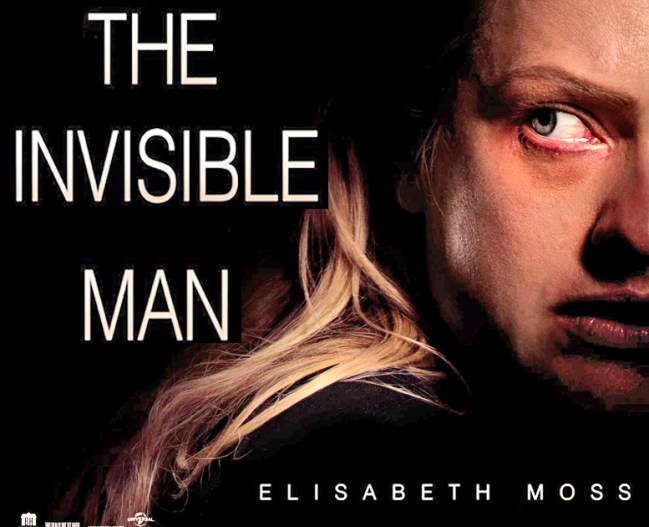 March
05
March
05
Tags
The Invisible Man (2020)

Under the global spotlight on domestic violence, The Invisible Man (2020) mixes the mystery, sci-fi, horror and gore genres to get inside the mind of a female victim of domestic abuse. While it can claim some narrative originality and excellent acting talent, it progressively becomes an incoherent mashup that contributes little to the understanding of a major social problem.
After years of abuse, Cecilia (Elizabeth Moss) drugs her brilliant but over-controlling scientist husband Adrian (Oliver Jackson-Cohen) and flees in the dead of night. While sheltered by friends she learns that Adrian has committed suicide, leaving her a fortune via a will administered by his lawyer brother. Soon her life is plagued with strange happenings, like physical signs of an unseen presence, objects moving by themselves, and a constant feeling of being watched. After an apparent act of inexplicable violence, she is blamed for a murder, incarcerated, and cut off from Adrian’s wealth. Pregnant and helpless, she finds herself under the control of Adrian’s brother.
To this point the story sits well in the mystery-horror genre, with potential to explore abuse victimhood via the tropes of mental illness. The audience may willingly be drawn towards the well-worn cliché of weird happenings as projections of a disturbed mind. Once the sci-fi genre is wheeled into action, the film’s tension curve and plot drift towards nonsense as Cecilia discovers Adrian’s invention for rendering humans invisible.
Armed with this discovery, Cecilia resolves to stand up to her unseen tormentor and here the fun starts. From victim to aggressor, she is a role model for taking control. Some viewers, however, may find it difficult to empathise with Cecilia’s terror when the invisible menace is seen covered in chain-mail armour that looks like it was borrowed from a Monty Python skit. If you prefer more low-tech horror stunts, you might be impressed when Cecilia throws a handful of flour over the menacing form to convince viewers that it is really there. For those with hemophobia, be warned that, in the absence of plausible storytelling, the gore genre dominates the film’s convoluted feminist finale.
The best that might be said of this film is that Elizabeth Moss performs terrified expressions very well. Other than that, low production values and a ‘more is never enough’ directing style means that despite a few good ingredients, this film achieves little of lasting value.

Director: Leigh Whannell
Stars: Elizabeth Moss, Oliver Jackson-Cohen, Michael Dorman

Much more higher on this than you are. Great review though!
LikeLiked by 1 person
Good to read a different view on this film; thanks for commenting MovieMan.
LikeLiked by 1 person
I’m unlikely to ever watch this movie…too much disappointed in the past by similar films & you may not wish to influence to that extent, but your review did convince me I was right.
But I did instead watch Motherless Brooklyn on the weekend. Not loved on imdb but perhaps many of those “reviewers” idealise Marvel films. I thought it was very good. Interested to read your impression if you get time to see it. Incredible music scene in a bar, excellent chemistry between actors & a superb look & feel
LikeLiked by 1 person
Thanks for commenting SouthernMail, and for the heads up on Motherless Brooklyn.
LikeLike
monthlycritic.wordpress.com/2020/03/20/the-invisible-man/ My review if you fancy comparing. Who’d have thought this would be on home entertainment so early? You’re welcome to follow.
LikeLike
Good cinema.
LikeLike
this is an exciting movie
LikeLike